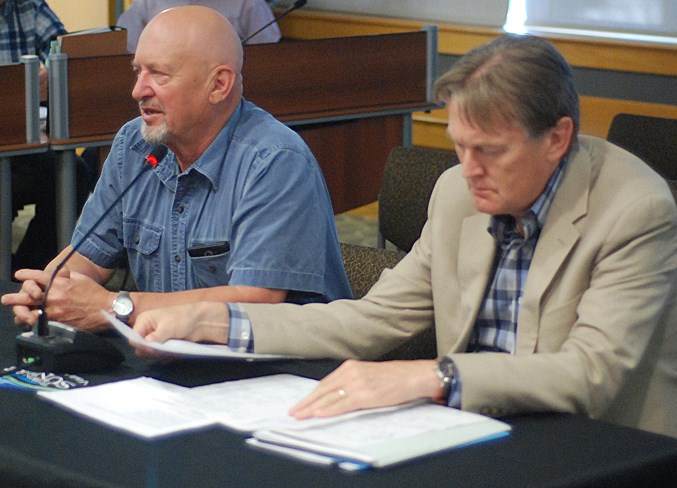Although not facing financial dire straits, Mountain View Seniors' Housing (MVSH) has nevertheless initiated a review of the non-profit organization’s funding and governance models with the aim of improving long-term sustainability.
“We want to emphasize this is not a crisis situation. We’re not in any danger of being unsustainable,” said MVSH chair Bruce Beattie during a June 4 presentation to Sundre’s council, which was the final delegation following similar discussions with other municipal councils in the region.
Beattie, who is also the reeve of Mountain View County, said one of the board’s goals is to ameliorate or at least ensure continued sustainability through annual strategic planning sessions.
“We’ve grown a lot in the last seven years. We’ve doubled our equity, we’ve doubled our assets, we’ve increased our full-time equivalents by about 130 positions, and we’ve added about 100 units to the organization through the addition of, of course, the new lodge here in Sundre and the new additions in the lodge in Olds.”
But such a substantial amount of growth over a relatively brief period of time obviously presents challenges for any organization, he said.
“We want to make sure that everyone’s on the same page in terms of our membership, and all of our councils know exactly what our plans are, where we are now and what we’re considering so we can come back in the fall with perhaps a business plan that we’ll present.”
Accompanying Beattie was Sam Smalldon, MVSH’s chief administrative officer, who also addressed council.
Smalldon reiterated Beattie’s comment that the organization is not navigating through an emergency, but that efforts are ongoing to improve sustainability.
“One of the issues we always have is having enough revenue,” said Smalldon, adding part of the solution could potentially be revisiting the organization’s funding model.
“As far as a housing management body, we are working in a model where there’s a partnership between the province, the municipalities and the seniors. So, 100 per cent of revenues for us come from that partnership.”
The breakdown in years past amounted to 15 per cent from both the province as well as the municipality, with resident fees covering the last 70 per cent, he said.
“Our goal is not to make money at the bottom line, but to balance our budget and to provide the best we can within those revenues.”
At this point, the province is contributing approximately eight per cent, with the balance of that decrease being borne by municipalities and residents, he added.
“What we hope to do is to a create a new business plan and come back in the fall under that new model and explain to you how we possibly could move forward positively to help operate our business in a more comparable model to other operators.”
Another matter that must be acknowledged and addressed is stagnating staff salaries, he said.
“We’re openly admitting that we have a wage gap between the market for wages and benefits for our staff,” he said, adding the organization remains for the time being on a salary freeze.
Although there was about $420,000 in revenue available, the funds ended up being earmarked for other expenses, he said.
“It was because of legislation changes by the province — carbon tax and other factors — that money had to be re-allocated.”
While those funds would preferably have gone towards increasing salaries, there were only so many dollars available, he said, adding raises cannot come as a trade off by for example reducing maintenance costs.
“This is going to be an ongoing issue unless we fix it.”
While the organization can always get better, Smalldon noted, “One of the things we have achieved is better openness, transparency, accountability and integrity…we’ve also demonstrated some competence in both operating and in capital projects — that we’ve been able to set a plan, set a budget, implement and bring it in on time and on budget and in good quality.”
Concluding his presentation to council, Smalldon added as a final point that the organization’s rates are below market.
“We are sitting around $2,200 a month, which is a full accommodation fee. The average in Central Alberta for other housing management bodies — not private sector — is around $2,500.”
Mayor Terry Leslie, who sat on the MVSH governing board for four years, said demand studies the organization commissioned have given credibility to the projects that have been built.
“The ability to put a building together on time and in budget is a model that I think has served you well and your reputation around the province.”
Coun. Charlene Preston said that as baby boomers continue to age, the province is going to need such facilities.
“I’m also very happy to hear that you’re looking at a different model, whether that be governance and funding or both.”



